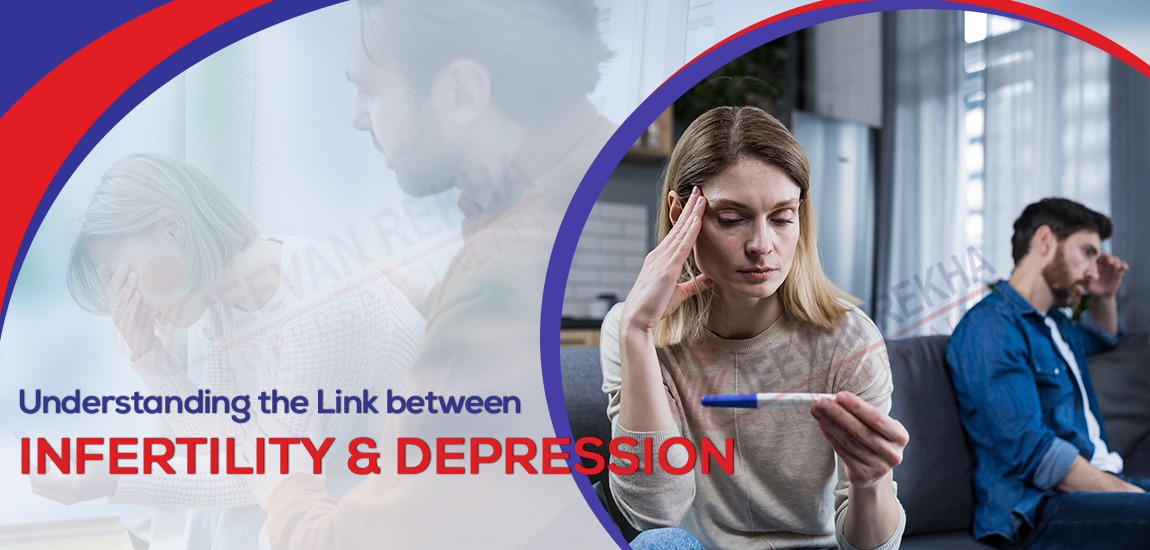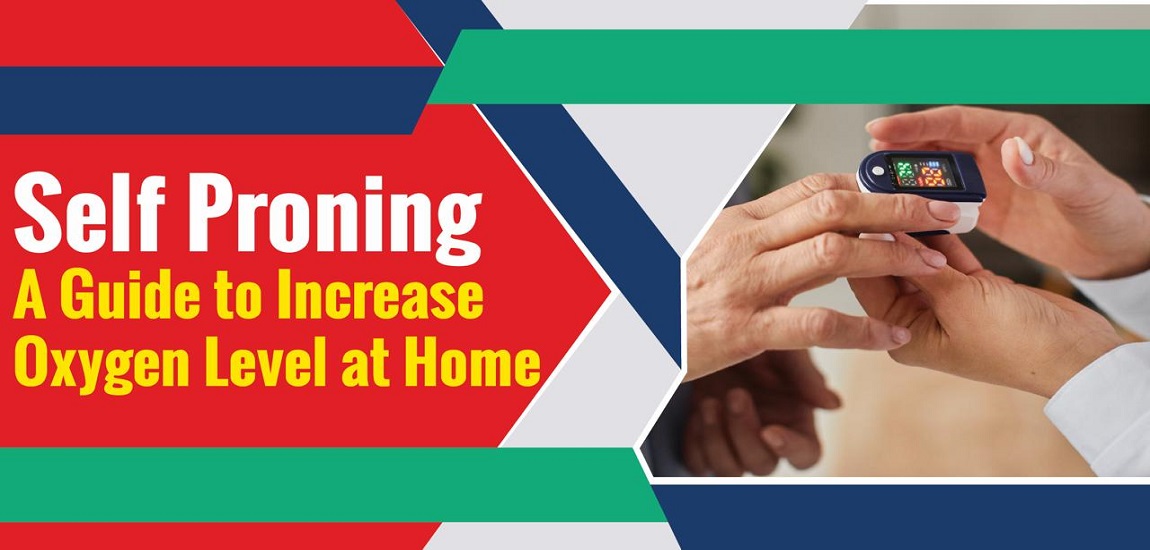
- By Admin
- In Health and Tips,
- Posted April 22, 2024
Understanding the Link between Infertility and Depression
The complex relationship between infertility and depression, examining how they can influence each other. Infertility, with its myriad personal, societal, and emotional implications, often leads to feelings of despair and sadness. The pressure to fulfill personal hopes and societal expectations tied to family building can exacerbate these feelings. Additionally, the challenges and expenses associated with assisted reproductive technologies (ARTs) can further contribute to distress.
While the link between infertility and depression is widely acknowledged, the article also explores the lesser-known connection: how depression might impact fertility. Research suggests that depression can potentially hinder one's ability to conceive, though the mechanisms behind this are not fully understood.
By addressing both aspects of this relationship, the article aims to provide insight into how infertility and depression intersect and influence each other. It offers guidance on coping strategies for individuals navigating both infertility and depression, recognizing the importance of holistic support in facing these challenges.
How is infertility linked with depression?
Infertility and depression often have a bidirectional relationship, where one can exacerbate the other. Here's how infertility is linked with depression:
- Emotional Impact: The inability to conceive despite efforts can lead to feelings of grief, loss, and sadness. Individuals may experience a sense of failure, inadequacy, or guilt, especially if they perceive parenthood as a crucial aspect of their identity or life plan.
- Stress: The stress of coping with infertility, undergoing fertility treatments, and facing uncertain outcomes can take a toll on mental health. Chronic stress associated with infertility can contribute to the development or worsening of depression symptoms.
- Relationship Strain: Infertility can strain relationships, leading to conflicts, communication breakdowns, and feelings of isolation. These interpersonal challenges can contribute to feelings of depression for both partners.
- Social Stigma: Infertility may be accompanied by social stigma or societal pressure, which can further exacerbate feelings of shame, embarrassment, or inadequacy, contributing to depressive symptoms.
- Hormonal Changes: Some research suggests that hormonal imbalances associated with infertility may directly influence mood regulation, potentially increasing the risk of depression.
- Treatment Side Effects: The side effects of fertility treatments, such as hormonal medications or invasive procedures, can impact mood and emotional well-being, potentially contributing to depressive symptoms.
Symptoms:
Depression related to infertility can manifest in various ways, and individuals may experience a combination of physical, emotional, and behavioral symptoms. Some common symptoms of depression due to infertility include:
- Persistent Sadness: Feelings of sadness, hopelessness, or emptiness that persist for most of the day, nearly every day.
- Loss of Interest or Pleasure: Loss of interest or enjoyment in activities that were once pleasurable, including hobbies, socializing, or intimate relationships.
- Changes in Appetite or Weight: It can manifest as significant fluctuations, including both weight gain and loss.
- Sleep Disturbances: Sleep disturbances may present as difficulty initiating sleep, maintaining sleep throughout the night, or excessive sleeping, known as hypersomnia. Insomnia and disrupted sleep patterns are frequently observed in individuals experiencing depression related to infertility.
- Fatigue or Low Energy: Persistent fatigue, low energy levels, or feelings of sluggishness, even after rest or sleep.
- Difficulty Concentrating: Difficulty concentrating, making decisions, or completing tasks. Individuals may experience cognitive fog or memory difficulties.
- Feelings of Worthlessness or Guilt: Feelings of worthlessness, self-blame, or guilt, particularly regarding one's inability to conceive or fulfill societal expectations.
- Irritability or Agitation: Increased irritability, restlessness, or agitation, leading to heightened sensitivity to stressors or conflicts.
- Physical Symptoms: Unexplained physical symptoms such as headaches, digestive issues, or chronic pain, which may accompany or exacerbate depressive symptoms.
- Thoughts of Death or Suicide: Recurrent thoughts of death, dying, or suicide, or engaging in self-harming behaviors. Taking any thoughts of self-harm seriously is crucial, and seeking immediate help is essential.
When to see a doctor?
It's crucial to seek medical help if you're experiencing symptoms of depression related to infertility. If these symptoms persist for more than two weeks and significantly disrupt your daily life, relationships, or overall well-being, it's time to schedule an appointment with a healthcare provider.
Additionally, if you're finding it difficult to cope with the emotional distress, experiencing thoughts of self-harm or suicide, or noticing changes in your physical health, seeking professional support is essential.
Don't hesitate to reach out for help – mental health professionals can provide guidance, support, and appropriate treatment options to help you navigate this challenging time. Remember, seeking help is a proactive step towards healing and well-being.
Treatment:
Treatment for depression related to infertility typically involves a combination of therapies aimed at addressing both the emotional distress associated with infertility and the underlying depression. Here are some common treatment approaches:
- Therapy/Counseling: Individual therapy, such as cognitive-behavioral therapy (CBT), can help individuals explore and reframe negative thought patterns, develop coping strategies, and process emotions related to infertility and depression. Couples therapy may also be beneficial for improving communication and support between partners.
- Medication: Antidepressant medications, such as selective serotonin reuptake inhibitors (SSRIs) or serotonin-norepinephrine reuptake inhibitors (SNRIs), may be prescribed to help alleviate depressive symptoms. It's essential to discuss the potential risks and benefits of medication with a healthcare provider.
- Support Groups: Joining a support group for individuals experiencing infertility or depression can provide a sense of community, validation, and peer support. Sharing experiences with others who understand can be comforting and empowering.
- Lifestyle Changes: Engaging in regular exercise, maintaining a healthy diet, getting enough sleep, and practicing relaxation techniques (e.g., mindfulness, yoga) can help improve mood and overall well-being.
- Mind-Body Therapies: Mind-body techniques such as acupuncture, meditation, or guided imagery may help reduce stress and promote relaxation, potentially alleviating depressive symptoms.
- Fertility Counseling: Seeking counseling specifically focused on fertility-related issues can provide emotional support, help individuals navigate complex decisions about fertility treatments, and explore alternative family-building options.
- Self-Care Practices: Incorporating self-care practices into daily routines, such as setting boundaries, engaging in activities you enjoy, and practicing self-compassion, can help nurture emotional resilience and well-being.
- Consultation with Reproductive Specialists: Consulting with reproductive specialists can provide valuable information about fertility treatment options, success rates, and potential challenges. Understanding the available options and making informed decisions can alleviate some of the stress associated with infertility.
Jeevan Rekha Hospital stands as a beacon of hope and support for individuals facing infertility challenges in Jaipur. With a dedicated team of experts and state-of-the-art facilities, Jeevan Rekha Hospital is recognized as one of the best infertility hospitals in Jaipur. Our commitment to providing comprehensive care extends beyond medical treatment to encompass emotional support, guidance, and personalized solutions tailored to each individual's needs.
At Jeevan Rekha Hospital, we understand the profound impact that infertility can have on individuals and couples, both emotionally and physically. Through a holistic approach to care, including advanced fertility treatments, counseling, and support services, we strive to empower our patients on their journey towards parenthood.
With a focus on compassion, expertise, and innovation, Jeevan Rekha Hospital remains dedicated to helping individuals overcome infertility challenges and achieve their dreams of starting a family. Trust us to be your partner in this journey, and let us provide you with the care and support you deserve. Experience the difference at Jeevan Rekha Hospital, the best infertility hospital in Jaipur.
Tags
Blog Search
Latest Posts
-
Ear Infections (Otitis Media): Top Triggers & How to Avoid Them?
April 11, 2025 -
Implantation Bleeding Vs Periods: Know the Difference
March 12, 2025 -
5 Tips for a Happy and Healthy Summer
February 27, 2025 -
Body Ache (Pain): Causes, Symptoms and Treatment Options
February 10, 2025 -
Fatigue and Exhaustion: Causes, Symptoms, and Treatment
January 08, 2025




